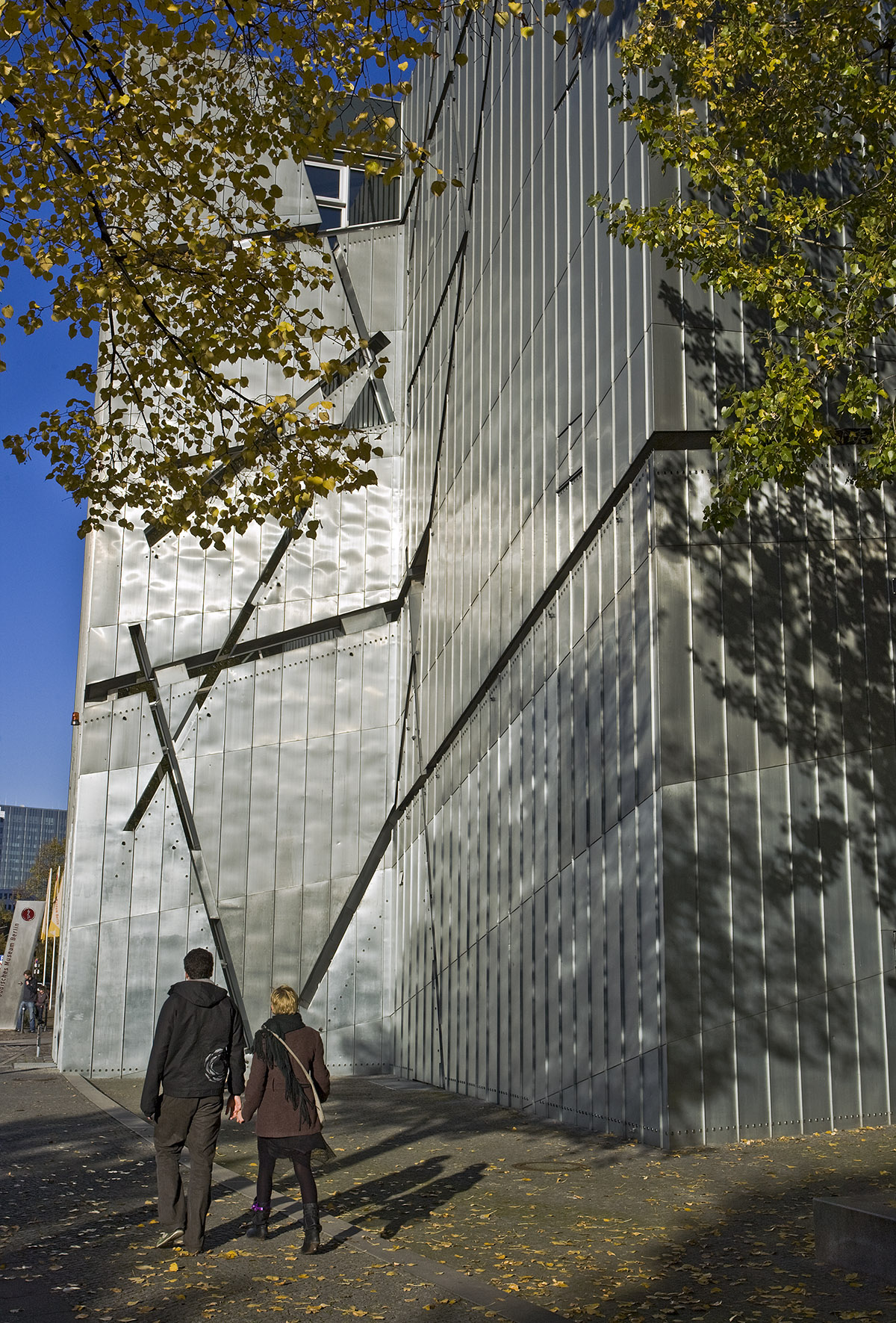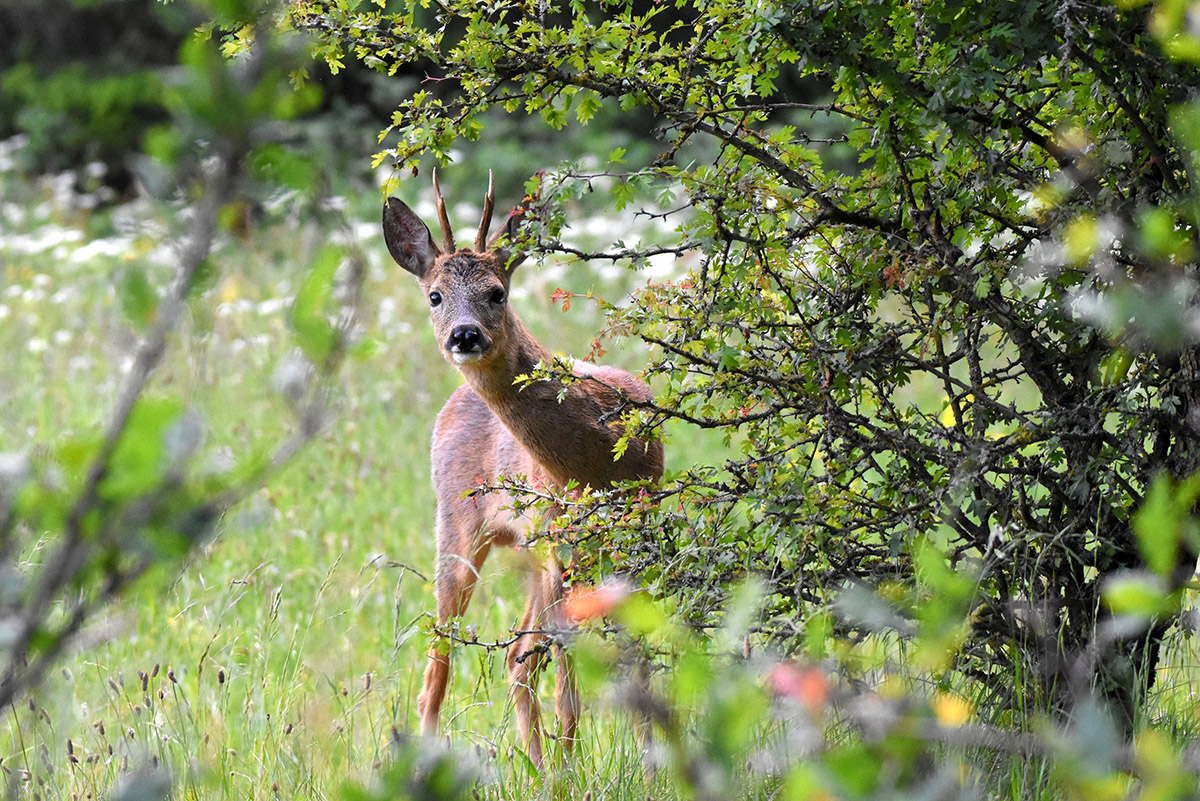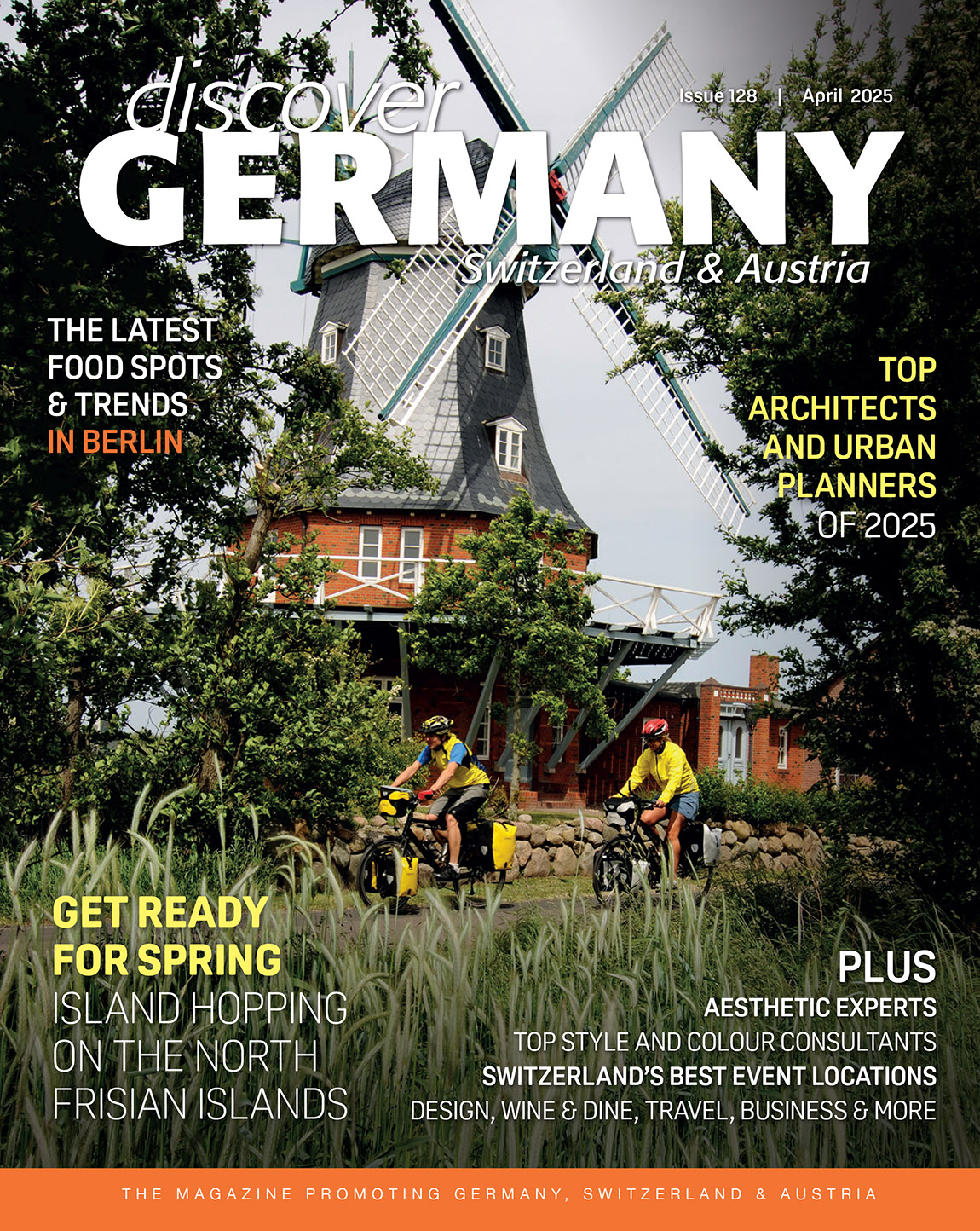Felix Finkbeiner: “Stop talking, start planting”
INTERVIEW BY NANE STEINHOFF | PHOTOS: PLANT-FOR-THE-PLANET
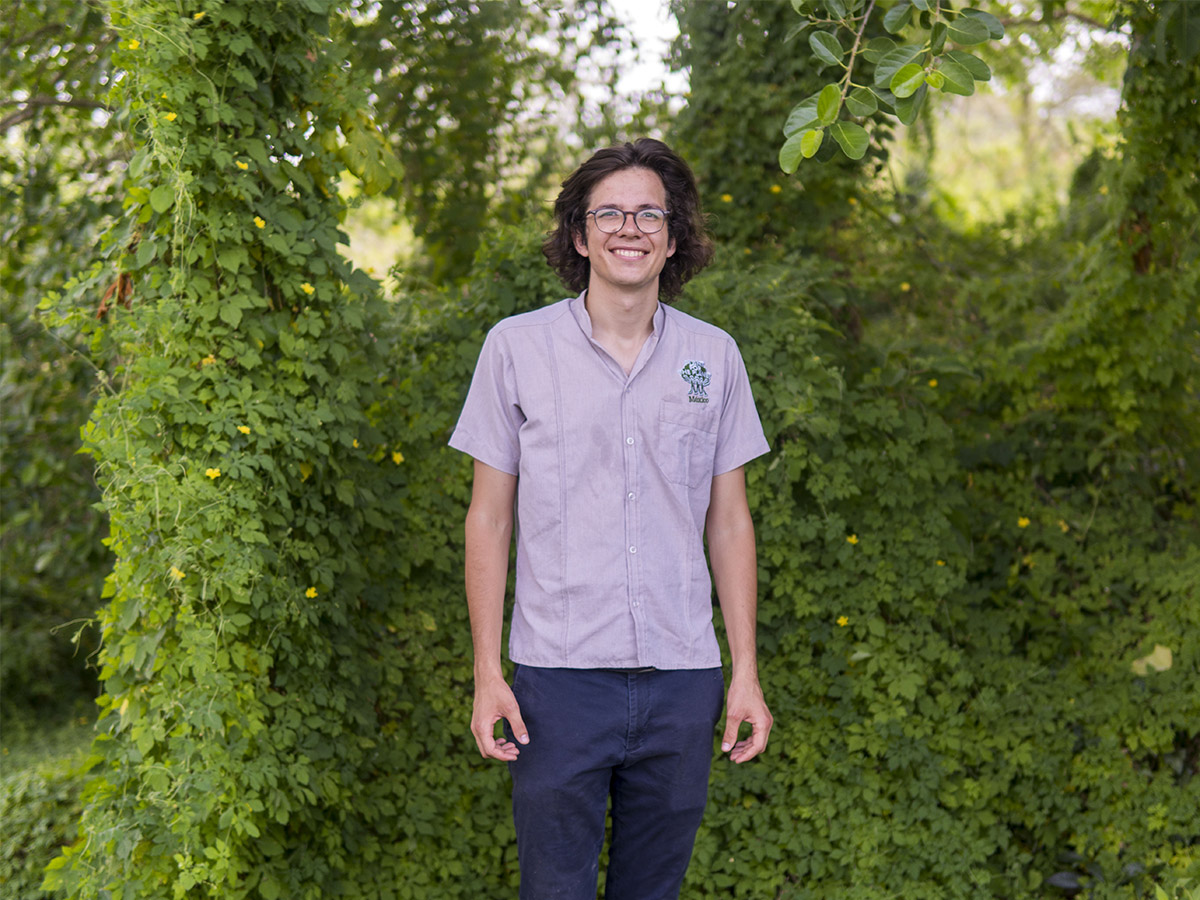
Felix Finkbeiner, founder of Plant-for-the-Planet.
In 2007, a nine-year-old boy from Germany decided that more action had to be taken to counteract climate change. Thus, he initiated the initiative ‘Plant-for-the-Planet’. What started off as a school project, turned into a global movement that is on course to restore one trillion trees.
Discover Germany: How did Plant-for-the-Planet come to life?
Felix Finkbeiner: “In 2007, when I was 9 years old, I had to prepare a presentation on the climate crisis for school. During this preparation, I learned about Wangari Maathai, the Nobel Peace Prize recipient. I found her work so inspiring that I thought that all children around the world should plant a million trees in every country. My teacher and classmates were excited about this idea and so we planted the first tree in the school yard. A journalist wrote about this in the local newspaper and another school decided to also plant a tree. Then another school nearby joined in by planting some trees too and a student at that school created a website: a ranking of local schools by how many trees they had planted. And it became a challenge and lots of children started participating. That was the beginning of Plant-for-the-Planet. Four years later I was invited to give a speech at the United Nations. By this time, I had found out that one million trees per country would not be enough to make a real impact on the climate crisis. So we appealed for one trillion trees.”
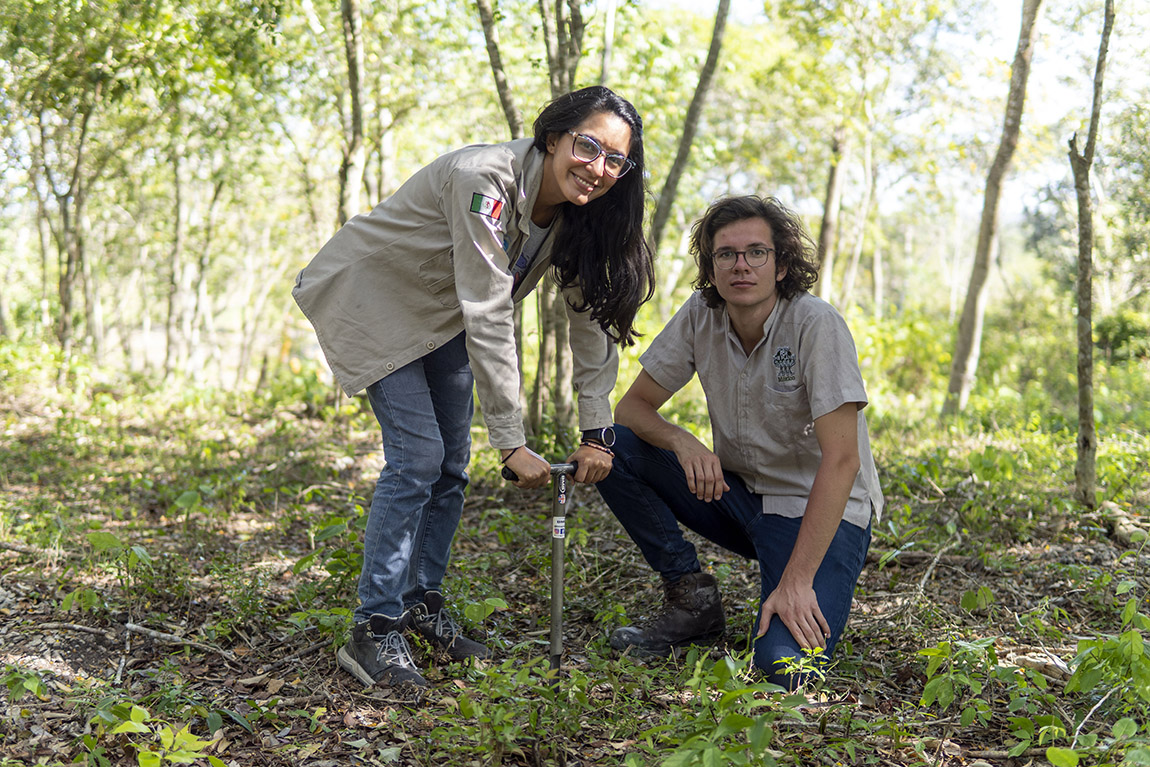
Felix Finkbeiner with a biologist, taking soil samples on the project site in Mexico.
Discover Germany: What has happened since? How many trees have been planted so far?
Felix Finkbeiner: “In the beginning, we focused exclusively on the empowerment of children. Planting actions have always been a fundamental part of each Plant-for-the-Planet academy, but a lot of the donations we collected we passed on to restoration projects in the global south. Starting in 2015, we began restoring ecosystems at scale. We started our first personal project on the Yucatán Peninsula, Mexico. There we have planted more than 12 million trees since 2015. Later projects in Spain and Ghana followed. In 2012 though, we created The Change Chocolate. The fairtrade chocolate is sold in many supermarkets in Germany and Austria. All profits of the chocolate fund the work of our organization. Soon we will plant the 10 millionth tree, just through the sale of the chocolate. In 2018 we also began developing software for forest conservation and restoration – now one of our major focal areas.”
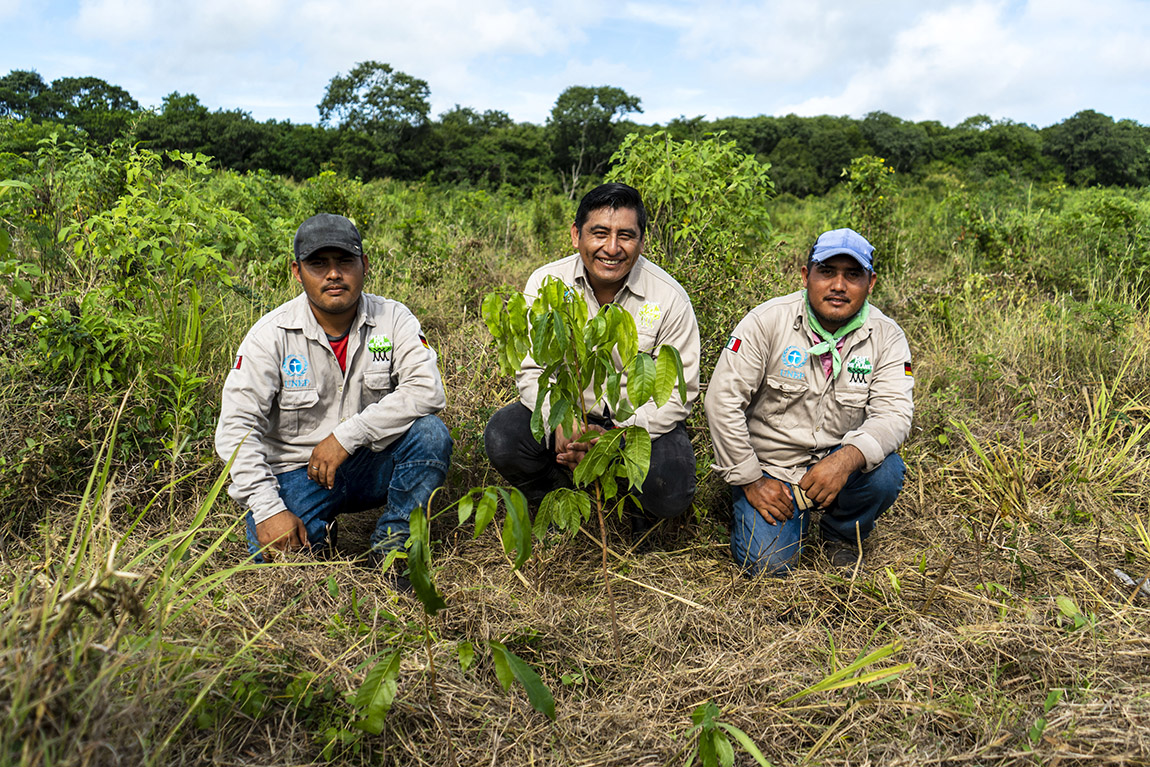
Team members of Plant-for-the-Planet’s forest restoration project in Mexico.
Discover Germany: What do you love most about your work?
Felix Finkbeiner: “I love to be able to have a real impact. It is great to see all the children and youth who are inspired by our movement to get active against the climate crisis. How they speak up and empower other children and how they plant trees. And I really love the work we do in Mexico, Ghana and Spain. All those trees that we plant there, the wonderful ecosystems that we help to protect. And finally, I enjoy working with so many creative people developing apps and tools that improve the restoration work of so many organizations around the world.”
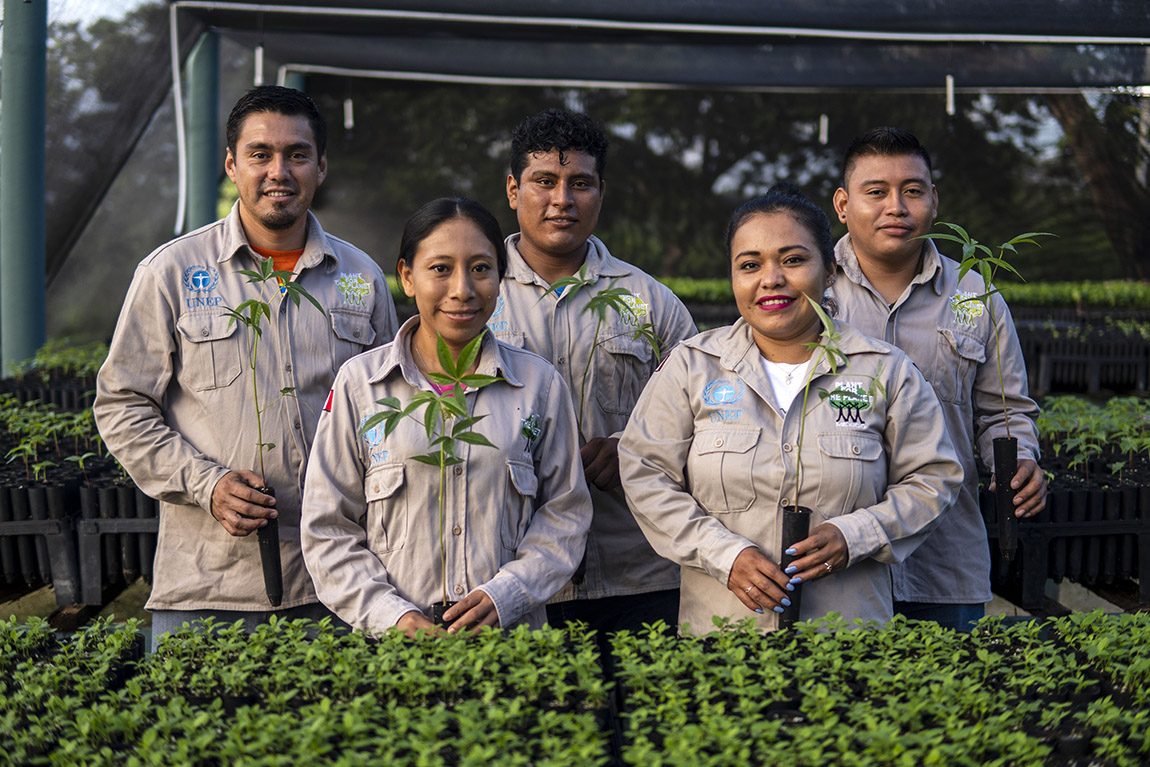
Team members of Plant-for-the-Planet’s forest restoration project in Mexico.
Discover Germany: Your ultimate goal is to restore 1 trillion trees. Why is that number important?
Felix Finkbeiner: “There used to be six trillion trees on Earth. Half of these have already been cut down mostly to gain land for agriculture, but also for a variety of other reasons like the need for firewood and timber or for industrial purposes. At the same time, the world population has grown immensely. So we cannot realistically bring back 3 trillion trees. A series of studies in the past years have shown that there is enough degraded land for an additional one trillion trees. Importantly: we don’t need to plant all these trees. There are a lot of other effective restoration techniques that we can use to bring back forests. Our goal is not to plant one trillion trees but to restore forests with one trillion trees.”

Plant-for-the-Planet is continuously rising the number of tree species planted in its ecosystem restoration projects. Many seeds are hand-collected by the team as the species are not cultivated for economic reasons.
Discover Germany: How exactly do your restoration projects work? What do you focus on? How do local communities get involved?
Felix Finkbeiner: “Each of our three projects follows a different approach, which is closely related to the geographic area, where they are located and the needs of the community. In Yucatán in Mexico, for example, we are working to restore the forest landscapes in and around the San Felipe Bacalar Natural Protected Area, as well as the Balam-Kú nature reserve and Calakmul Biosphere Reserves. Our sites have suffered different levels of degradation: Some areas are recently abandoned cattle pastures with only a few scattered trees left. Other areas were never fully deforested, but either economically valuable trees have been logged or significant proportions of the forest were destroyed by fires, leaving behind relatively species-poor vegetation. In other areas, the forest is still full of many species, and we are either conserving it or letting it regenerate on its own. We decided to work in Mexico as it is part of the mega-biodiverse areas in the world – a so-called biodiversity hotspot. Also, trees in the tropics grow a lot faster than trees in Europe do. This way they absorb more carbon dioxide in a shorter period of time and help us battle the climate crisis.”

Plant-for-the-Planet is continuously rising the number of tree species planted in its ecosystem restoration projects. Many seeds are hand-collected by the team as the species are not cultivated for economic reasons.
Discover Germany: Can you explain the importance of the restoration project in Mexico? What is being done currently?
Felix Finkbeiner: “In addition to the main restoration work In Mexico, we are also conducting several field experiments with our research partner universities to improve forest restoration work worldwide. For example, we are trying to find out which planting density is the most effective in restoring tropical dry forests and how this is influenced by the quality of the soil. In another experiment, we are investigating if we can accelerate the restoration of dry tropical forests by increasing the supply of nitrogen by adapting the species mix. All research focuses on rapidly restoring biodiverse forests. You can find out more about our research experiments on our website. here.”
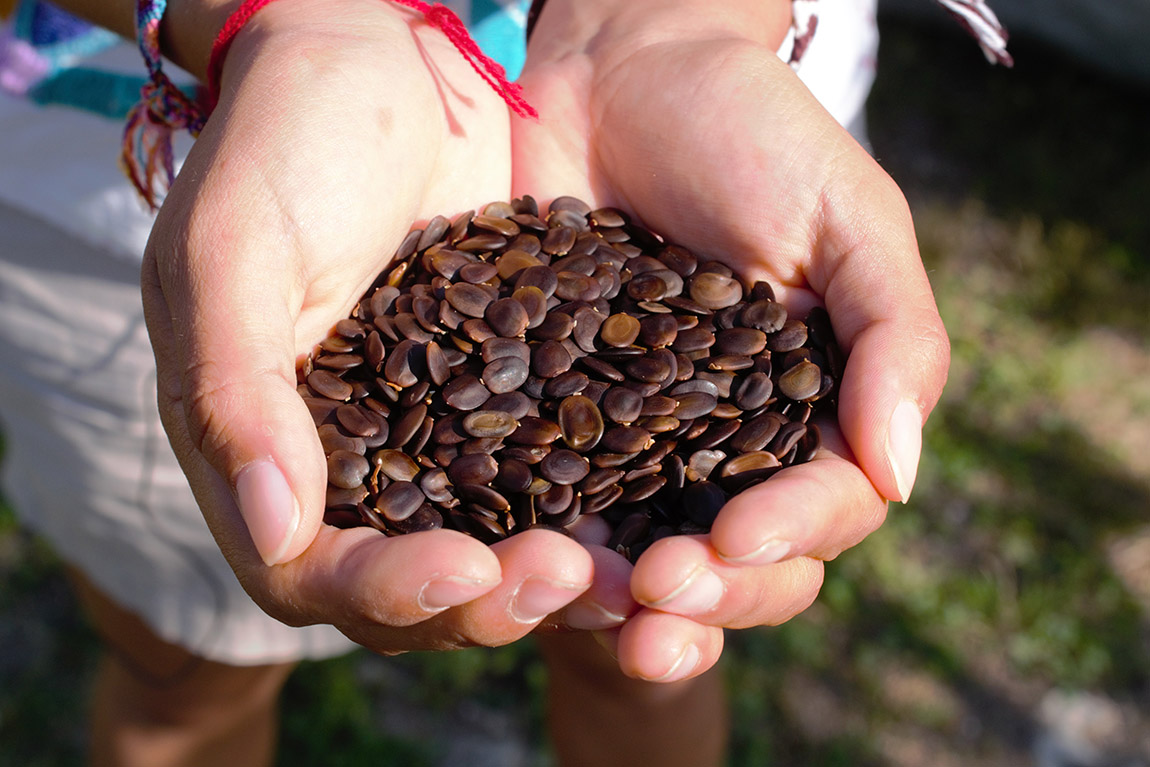
Plant-for-the-Planet is continuously rising the number of tree species planted in its ecosystem restoration projects. Many seeds are hand-collected by the team as the species are not cultivated for economic reasons.
Discover Germany: How important is cooperation and collaboration to Plant-for-the-Planet?
Felix Finkbeiner: “Cooperation and collaboration are absolutely crucial for us. We know that we can’t restore the one trillion trees all by ourselves. That’s why we developed the restoration platform pp.eco. On this platform, restoration projects can present themselves, make their work transparent and collect donations. The platform is completely free for the organizations, the only requirement is that the projects meet certain restoration quality standards, which we established together with specialists and scholars. We also develop software to improve forest restoration, like the apps TreeMapper, FireAlert and Tracer, which help monitor the development of forests, protect projects sites from wildfires or help farmers to comply with the EU regulation against deforestation. We also provide free restoration advice for projects.”
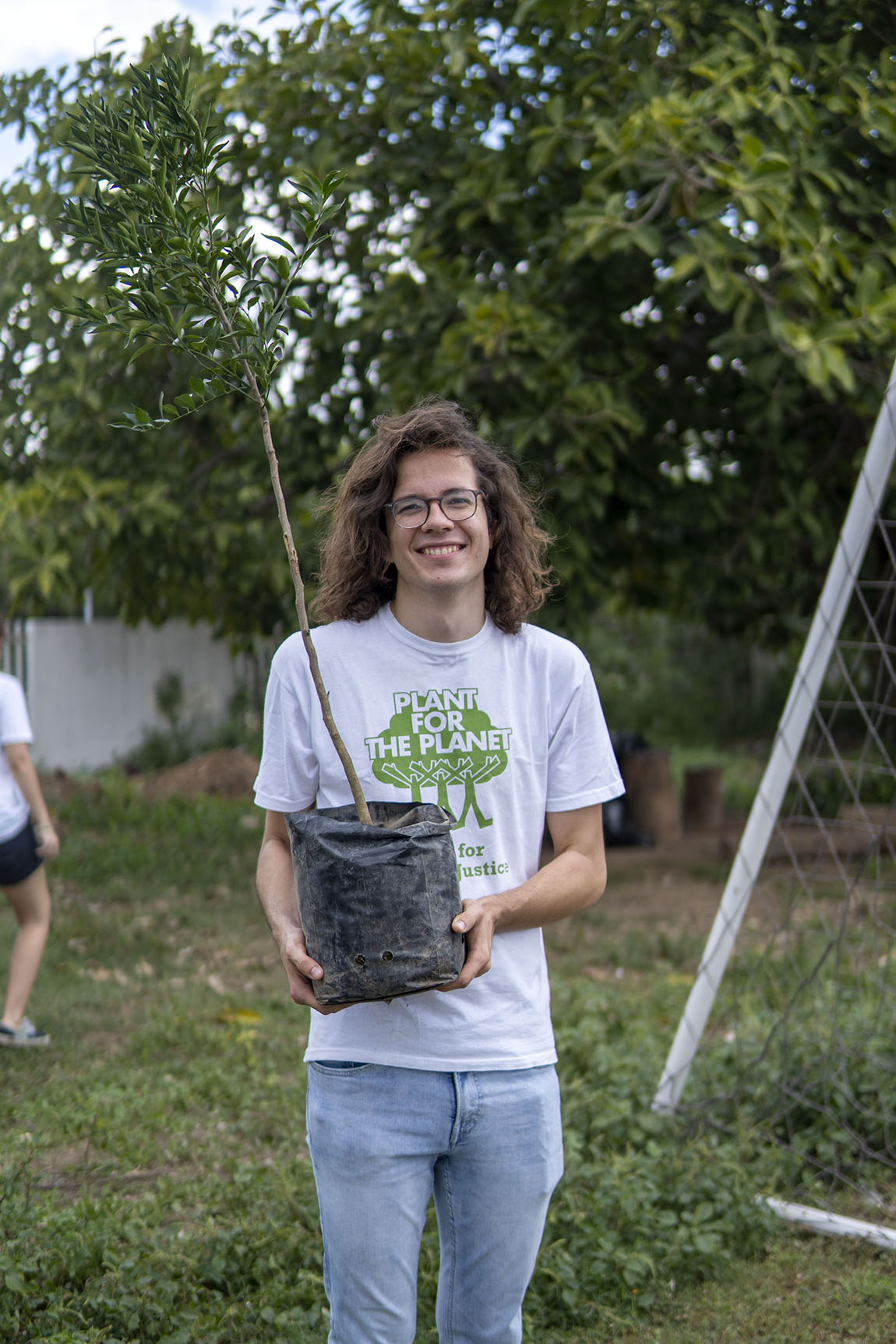
Felix at a planting action as part of a Plant-for-the-Planet academy.
Discover Germany: What do you hope for Plant-for-the-Planet in the future?
Felix Finkbeiner: “In 2021, 140 of the world’s governments promised to end and reverse deforestation by 2030. It’s a tough goal to meet, but not impossible. Plant-for-the-Planet’s goal is to help make sure this comes true. We will do so by restoring and protecting forests, by enabling others to restore forests and by empowering young people to fight the climate crisis.”
Discover Germany: What else is planned for the remainder of 2024? Any exciting plans?
Felix Finkbeiner: “In the beginning of 2024 we introduced the software Tracer, which we developed to help smallholder farmers to comply with the rules of the EU regulation for deforestation-free supply chains (EUDR). The EUDR is an ambitious piece of legislation taking forest protection to another level: all companies trading goods in the EU, which contain cattle, cocoa, coffee, palm oil, rubber, soy, and wood have to prove that their products do not originate from recently deforested areas or contribute to forest degradation. Complying with this requirement is very difficult for large companies and agricultural enterprises. But coffee and cocoa is produced by smallholder farmers, and many of them don’t even know about the regulation yet, although it will be enforced on December 30, 2024. The Tracer software is free and helps farmers to digitally map their farms. The software uses satellite data to check whether a forest was cut down after 2020. The farmers can save the data and submit it to their customers or cooperatives. In the fall we will make the software available in an app, making it even more accessible for users with smartphones. Of course, our main goal is to protect the forest, but if we educate the farmers about the regulation and make a tool like Tracer available to them, the chances of survival for the forests are a lot better. And the farmers can continue trading with the EU. But we have even more great things coming up this fall: we will present a complete revamp of TreeMapper our forest monitoring app, we will plant the 10 millionth tree funded by the Change Chocolate, and we will present a major update to our academy curriculum.”
Discover Germany: What is the best piece of environmental advice you can give? What can we all do to be more sustainable?
Felix Finkbeiner: “It is important that we all keep in mind that we need to cut down our greenhouse gas emissions. Everyone can contribute and make an effort: you can ride your bike more often, use public transport and try to fly less. The most effective thing you can do to protect the world’s forests is to reduce your meat consumption, especially beef.”
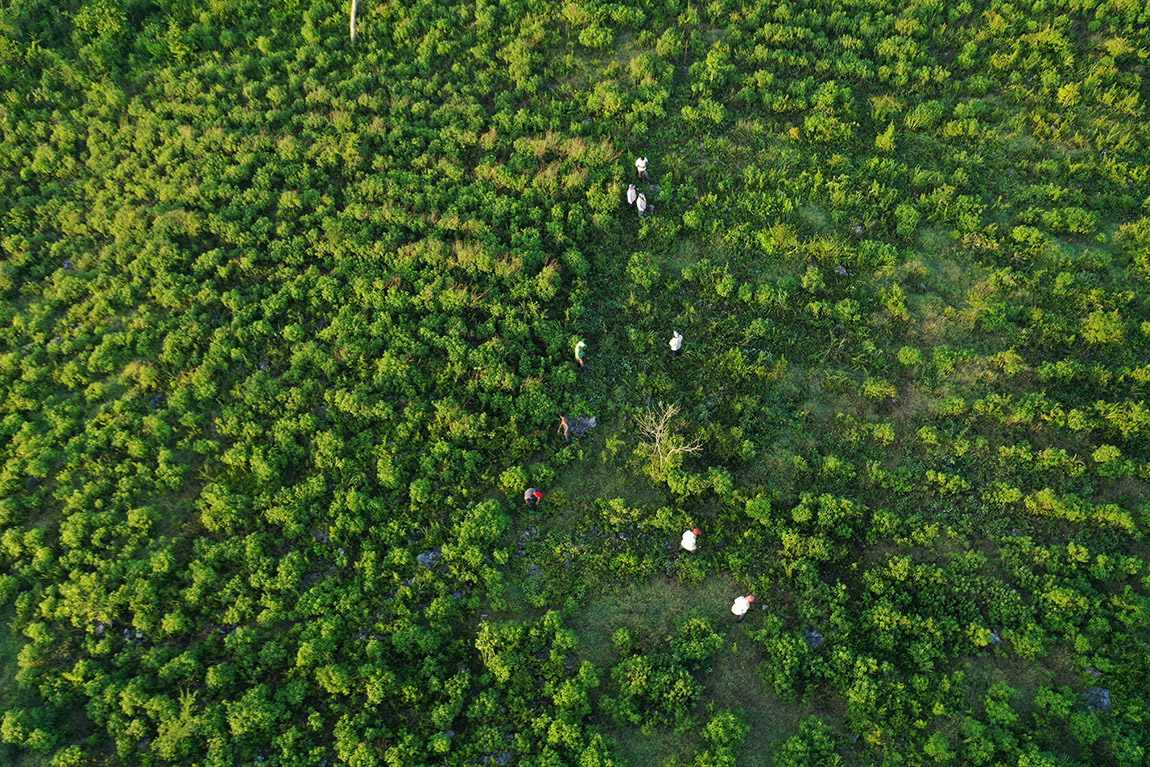
The team of Plant-for-the-Planet Mexico working during planting season.
Subscribe to Our Newsletter
Receive our monthly newsletter by email


